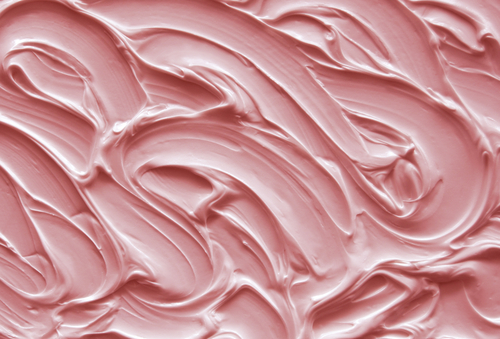Is Frosting Bad For You?
Also Known As: icing
Short answer
When it comes to foods to avoid, frosting takes the cake. With nothing good to offer (except perhaps taste), it should only be enjoyed very sporadically, if at all.
Recommended Alternative
Category 'F' is for things that fail to bring anything beneficial to the table, and are very harmful to your health. We recommend completely avoiding anything in this category. Long-term side effects of 'F' items are usually very serious.
View Full Grading System
Category 'A'
Very healthy and numerous health benefits. Side effects are rare. Things rated an 'A+' are typically necessary for survival (for example, water).
Very healthy and numerous health benefits. A few harmful qualities may be associated, but only under certain circumstances such as an allergic reaction.
Very healthy and numerous health benefits. Harmful qualities may be associated, but aren't usually serious.
It is important to note that even the best things in life can become bad in immoderate amounts. So, although something may be rated an 'A+', overconsumption/overdoing can bring unwanted effects.
Category 'B'
Very beneficial to your health. Things rated a 'B+' may have a few harmful qualities to pay attention to.
Overall beneficial to your health. Things rated a 'B' may have some harmful qualities to pay attention to.
More beneficial to your health than not. However, harmful qualities are most likely associated and shouldn't be overlooked.
The main difference between category 'A' and category 'B' is the harmful qualities typically present in 'B' items. Serious side effects are usually uncommon, but are still possible and should be taken note of.
Category 'C'
Both beneficial and harmful qualities associated. Things rated a 'C+' are typically a bit more on the beneficial side. Still, moderation is important.
A fairly even ratio of beneficial and harmful qualities. Moderation is important. Very general topics that can lean towards both sides of the spectrum will be placed here as well. Rice, for example, can be good or bad depending on the type.
More harmful than beneficial. Side effects are common, especially when consumed/done excessively. Moderation is very important.
Category 'C' usually denotes to both good and bad qualities. When it comes to this category, it is important to keep this word in mind: moderation.
Category 'D'
Harmful to your health. Although benefits may be associated, the bad most likely outweighs the good. Moderation is very important.
Harmful to your health. A few benefits may be associated, but the bad outweighs the good. Moderation is extremely important.
Harmful to your health. Very few, if any, benefits are present. Things in this category should be avoided as much as possible.
Category 'D' is typically for things that are more harmful than beneficial. While consuming/doing something unhealthy once in a blue moon shouldn't hurt, we definitely recommend eliminating 'D' items as a regular part of your routine/diet.
Category 'F'
Category 'F' is for things that fail to bring anything beneficial to the table, and are very harmful to your health. We recommend completely avoiding anything in this category. Long-term side effects of 'F' items are usually very serious.
Category 'N'
'N' stands for neutral. Things placed into this category are generally (a) neither good nor bad for you, or (b) lack the necessary evidence to reach any conclusions.
Long answer
Though frosting may be a delicious addition to any cake, cupcake, or other pastry, there is nothing redeeming about it in terms of health. Made from sugar and water (or milk) with such ingredients as butter, cream cheese, and egg whites (the nutrients in eggs are found in the yolk), frosting is full of calories and fat, especially saturated fat. According to the nutrition label of one well-known brand of frosting, just two tablespoons (35g) contain 7% saturated fat and 130 calories. There are zero calories and zero grams of protein. Even though dietary fiber and iron are present, the amounts are so small as to be negligible.
Not only does frosting contain an abundance of saturated fat, but many brands also contain the amount of trans fat in one serving that is "allowed" for one full day. High fructose corn syrup, hydrogenated oils, artificial flavors / coloring, and a variety of other preservatives may also be present, but will vary brand to brand.
Consuming frosting regularly can lead to a host of health issues including, but not limited to, diabetes, heart disease, weight gain, liver dysfunction, and infertility in women (because of the trans fat). Due to its high sugar content, frosting can also lead to cavities and tooth decay.
With benefits that are slim to none and an array of associated problems too vast to list, frosting is one food that should be avoided. Having one cupcake or one slice of cake once in a while shouldn't do any harm, but making it a regular part of your diet could be putting your health in serious jeopardy.
Possible short-term side effects
- nausea
-
bloating
-
blood sugar spike
Possible long-term side effects
- diabetes
-
heart disease
-
obesity
-
tooth decay, cavities
-
liver dysfunction
-
infertility (in women)
-
cancer
-
stroke
Ingredients to be aware of
Healthier alternatives
- nut butter frosting
-
yogurt frosting
-
tofu frosting
Our Wellness Pick
(what is this?)
Simple Mills Vanilla Frosting
- Organic ingredients
- Gluten-free formula
- Vegan-friendly
- Made with coconut oil
- Free from artificial flavors
Learn More!
Please turn your Ad Blocker off to see this content. Thank you!
Thank you for your feedback!
Written by Jeff Volling
Published on: 12-27-2015
Last updated: 12-15-2023
Thank you for your feedback!
Written by Jeff Volling
Published on: 12-27-2015
Last updated: 12-15-2023

 Approved by
Approved by 















